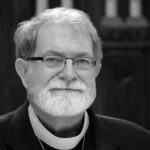In a few hours I will fly home from this extraordinary gathering of Anglicans who live, witness and worship in restricted circumstances where they are often the religious minority. Four primates, 31 bishops and “internal provincial” archbishops, 44 clergy and 59 lay leaders from twelve countries shared their humbling testimonies. Unlike the trials I have faced, these dear Anglican brothers and sisters in Christ face ongoing violence and unrest, severe restrictions on how they may share their faith, and even death over a single, false accusation. Yet they still witness in word and deed to the transforming love of Jesus Christ with whomever they can. It was an honor to be in the presence of the suffering Church within the Anglican Communion.
A statement from this conference will be available within the next few days on the GAFCON website and the American Anglican Council will certainly post it. In the meantime, let me offer a few closing observations of the suffering Church in the Anglican Communion:
There are Anglican brothers and sisters who stand firm and suffer for the clarity and authority of the Bible
They believe that Jesus Christ is the way, the truth and the life (John 14:6)—not a way, a truth and a life. They believe that the Bible is the divinely inspired, clear and final word of God—rather than a book that contains spiritual truths. They do not understand, nor do they accept, Anglican leaders and churches in the west that have departed from the faith once delivered to the saints (Jude 3), and Biblical standards regarding human sexuality, marriage and leadership in ministry. Not only do they grieve such false teaching, they suffer accusations of departing from Christ and the Bible and even persecution from other religions on account of such false teaching from Anglican leaders and churches in the West.
I heard testimonies of suffering Anglicans who even use inter-faith dialogue, among the most restrictive conditions, to intentionally sow the word of God from the Bible into the lives of people who have never heard the Bible. I listened to their testimonies of how such sowing came with power that led to further conversations and, ultimately, turned listeners and even other religious leaders to following Jesus Christ.
This is the power of the Bible, the power of the Gospel that Paul proclaims in Romans 1:16-17, and the very power to which GAFCON’s new Secretary General, Archbishop Ben Kwashi, testified as he has faced death threats, murders of Christians, burned churches and confiscation of property over the years in Jos Nigeria.
“The Christian Gospel does not destroy—it builds, in all contexts,” said Archbishop Ben, “There is no gospel of retaliation. You must clear and clean your minds of all bitterness and violence and retaliation.” He then went on to encourage the suffering Church to look at the First Epistle of Peter for encouragement in the face of persecution and concluded with this exhortation:
“I don’t want money! I want a Communion that will weep with me and suffer with me, not persecute me and take away my Bible. The Bible is the only thing I have to hold onto! So now we must all hold on to the Word of God! It is the only thing to hold on to—so I will not go back to a Lambeth Conference of Bishops!”
There are Anglican brothers and sisters whose witness and testimony confronts the possessive individualism and self-centeredness of Western Christianity
The suffering Anglican Church follows the example of Jesus, who was poor in resources but rich in word, Spirit and power. They follow Jesus Christ who healed the sick, delivered the demon-possessed, and transformed lives. They follow Jesus, who used whatever resources he had joyfully—even if it was his own spittle and some mud. So they don’t worry about retirement. They take up their cross and follow Jesus wherever he may lead, even if it means suffering persecution and violence. They follow the example of Jesus in his footsteps—with simplicity, holiness of life, humility, obedience and submission to God’s word. “We learn through suffering how to use the little that we have to the glory of God,” said Archbishop Ben, and more:
“As leaders of the church under persecution, we must stress this over and against the self-centered, self-serving altars we build to ourselves—tear them down so that we may deny ourselves and pour out our lives for Jesus.”
Everything for Jesus and his Great Commission (Matthew 28:16-20), instead of self and accommodation to the culture. This is the vision and narrative of the suffering Anglican Church. When will it become the vision and narrative of the entire Anglican Communion?
There are Anglican brothers and sisters whose Holy Spirit empowered lives are the future of Anglicanism
We heard some interesting statistics from Jason Mandryk on “The Gospel in 2019”
- While almost all of the non-Christian world religions are concentrated within the “10-40 window,” Christianity remains the largest world religion at 2.5 billion across all continents of the globe;
- Christianity is growing fastest in the Global South (Africa, Asia and Latin America);
- The United States is the second largest “non-religious” country (at 52 million compared to an estimated 600 million in China), and so represents a huge mission field;
- Pentecostal and Charismatic groups across all denominations (including Anglicans) will overtake the total non-religious population within the next 10 years;
- 50% of all children born in the next decades will come from India, Nigeria, Pakistan, DR Congo, Indonesia and other countries located in the Global South. An increasingly youthful Africa, Asia and Latin America over an increasingly aging West.
In Dubai, I have been told that 90% of the population here are workers from all over the world. One of the largest working communities comes from a country represented here by the suffering Anglican church. I just returned from a two-hour Communion service at a Cathedral which hosts this country’s Anglicans, among many other services. The Cathedral was almost full. The children were loud and many! We could hear them through the wall having Sunday school. They ran around in the church while their young parents took communion. Everybody loved it! This is the future of global Anglicanism if we are willing to embrace, celebrate and sustain it!
The shape of a new Global Anglicanism: Common faith and common mission “from everywhere to everywhere”
The leaders of GAFCON’s nine Networks were invited to share the vision and work of each network (I help lead GAFCON’s Lawyers Network). The last presentation by Canon Alan Hawkins (ACNA), who leads the GAFCON Global Church Planting Network, concluded with a wonderful graphic. Like a ball of yarn stretched from every Anglican Church to every Anglican church, it formed a beautiful web of reciprocal missionary relationships, sending and receiving. It is based on the reality that, today, most missionaries are no longer coming from the United States, the UK or the West. Instead, they are coming from places in the Global South like the suffering Anglican Church. They are sending missionaries to the dying Anglican churches in the West—but they are also sending and receiving missionaries among each other! Mission—from everywhere to everywhere.
Is it simply a coincidence that missionaries are now coming from these places-where the majority of Anglican Christians are evangelical, Bible-believing, and take Jesus’s words in the texts of John 14:6 and Matthew 28:16-20 with sacrificial and suffering sincerity?
It’s not a coincidence. This is the shape of an emerging, global missional Anglicanism, and the suffering Anglican church in particular. The conviction of Anglican leaders and Churches committed to making disciples of Jesus who make disciples, and planting churches who will multiply churches, flows directly from a common confession of faith that we find in The Jerusalem Declaration.
Make no mistake—it’s not the relationships in themselves that make this Communion. That would be to substitute the consequence for the cause. It is the common confession of faith in Christ alone as Lord and Savior of all, and the standing firm for the clarity and authority of the Bible, that creates these relationships.
For the suffering Anglicans gathered here, this is where their hope and joy lies—in Jesus Christ, and power of his Gospel (Romans 1:16-17).
The Rev. Canon Phil Ashey is President & CEO of the American Anglican Council.



